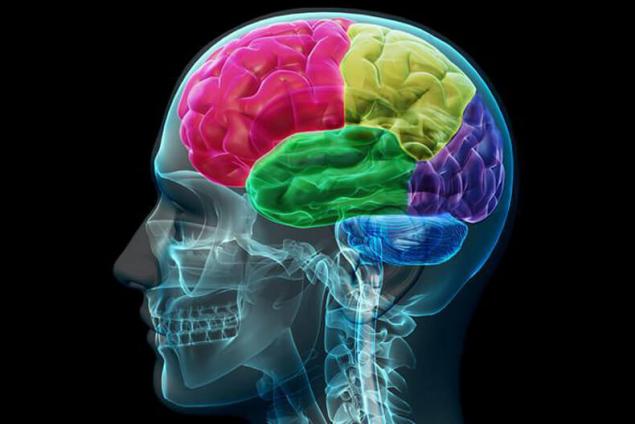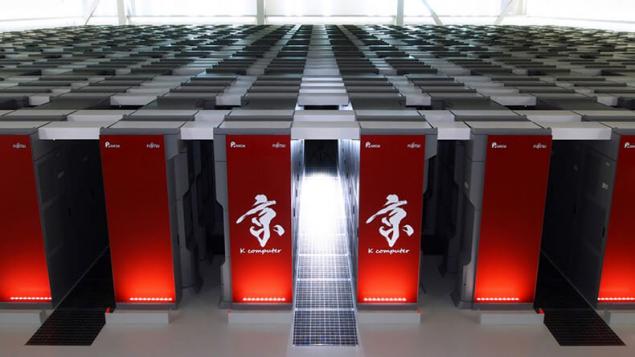To simulate 1 second of human brain work is required 82.944 processors
 Bashny.Net
Bashny.Net
The brain is a complex biological computing device that can simulate even the most powerful supercomputers in the world. However, this does not mean that they are not trying. A research team from Japan and Germany have managed to simulate one second of human brain work by using an extremely fast computer.

This feat of computing power has been possible thanks to opensorce software to build a simulation called the NEST. Also, the great fortune, the combined team of researchers had access to the fourth fastest supercomputer in the world – the computer By the Research Institute RIKEN in Kobe, Japan.
Using the platform NEST team under the leadership of Marcus Dismay and Abigail Morrison has managed to create an artificial neural network of 1.73 billion neurons connected by 10.4 trillion synapses. Although impressive figures are only a small proportion of neurons which are the brain of any person. According to scientists, the brain contains 80-100 billion nerve cells – about the same number as stars in our galaxy.

Given this fact, it is not surprising that scientists are not able to simulate the brain in real time. It took 40 minutes and the combined efforts of 82.944 processors of the computer To to play just one second of brain function. During operation of the simulation, it took 1 petabyte of system memory as each synapse was modeled individually.
Of course, the practical value of such simulations is minimal due to the small scale. However, the aim of this project was to prove that our ability to model biological systems has reached a critical moment. The science is now capable of describing very complex system to simulate the human brain.
Of course, it took an incredible amount of computing resources, but this is true for any problem since the first appearance of computers. Initially, only the fastest computers on the planet could play chess or render three-dimensional graphics.
Perhaps as technological progress, scientists will be able to simulate the human brain using cluster computing. And perhaps someday this task can handle even a home computer.
Perhaps all we need for artificial intelligence is to simulate the brain, equal in complexity to ours. This raises the question – if we are able to build such a brain, will it have a mind? What if we are simulating a brain MORE complex than ours? We may not want to know the answer to this question.published
See also: Greedy-brain and latent abilities
The brain and Happiness: How to change your feelings and behavior
P. S. And remember, only by changing their consumption — together we change the world! ©
Join us in Facebook , Vkontakte, Odnoklassniki
Source: gearmix.ru/archives/4424

This feat of computing power has been possible thanks to opensorce software to build a simulation called the NEST. Also, the great fortune, the combined team of researchers had access to the fourth fastest supercomputer in the world – the computer By the Research Institute RIKEN in Kobe, Japan.
Using the platform NEST team under the leadership of Marcus Dismay and Abigail Morrison has managed to create an artificial neural network of 1.73 billion neurons connected by 10.4 trillion synapses. Although impressive figures are only a small proportion of neurons which are the brain of any person. According to scientists, the brain contains 80-100 billion nerve cells – about the same number as stars in our galaxy.

Given this fact, it is not surprising that scientists are not able to simulate the brain in real time. It took 40 minutes and the combined efforts of 82.944 processors of the computer To to play just one second of brain function. During operation of the simulation, it took 1 petabyte of system memory as each synapse was modeled individually.
Of course, the practical value of such simulations is minimal due to the small scale. However, the aim of this project was to prove that our ability to model biological systems has reached a critical moment. The science is now capable of describing very complex system to simulate the human brain.
Of course, it took an incredible amount of computing resources, but this is true for any problem since the first appearance of computers. Initially, only the fastest computers on the planet could play chess or render three-dimensional graphics.
Perhaps as technological progress, scientists will be able to simulate the human brain using cluster computing. And perhaps someday this task can handle even a home computer.
Perhaps all we need for artificial intelligence is to simulate the brain, equal in complexity to ours. This raises the question – if we are able to build such a brain, will it have a mind? What if we are simulating a brain MORE complex than ours? We may not want to know the answer to this question.published
See also: Greedy-brain and latent abilities
The brain and Happiness: How to change your feelings and behavior
P. S. And remember, only by changing their consumption — together we change the world! ©
Join us in Facebook , Vkontakte, Odnoklassniki
Source: gearmix.ru/archives/4424
Tags
See also
Myths and facts about the human brain
5 things that will crash the human brain
Scientists plan to establish a molecular model of the human brain
Scientists intend to build a supercomputer that simulates the activity of the human brain
Secrets that keeps the human brain
25 facts about the human brain is incredibly powerful
Museum of the history of computing
In the online stores sell USB cables-C, which can damage the laptop
Neyrolingvist Tatyana Chernigov: How the Internet affects our brains
Viruses have helped shape the human brain

















